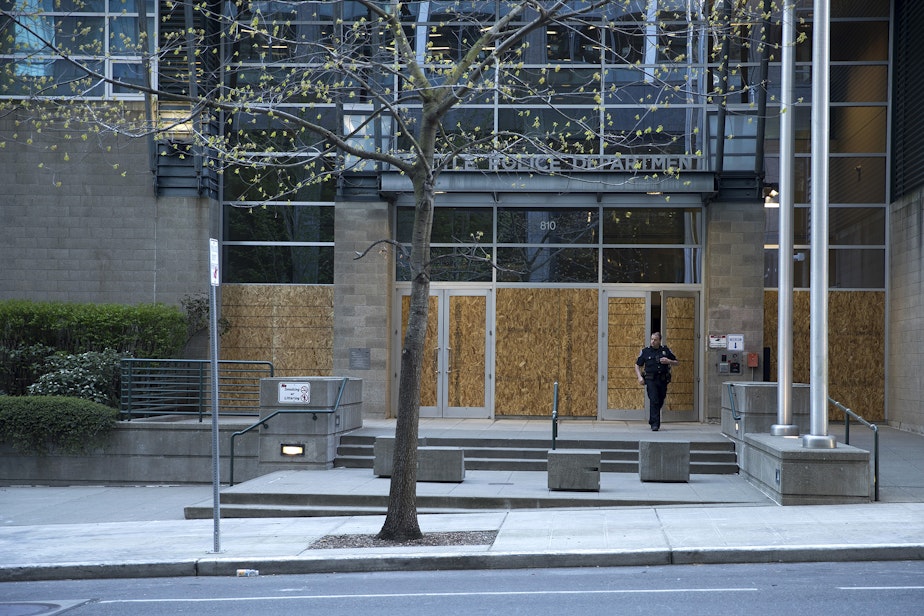'Just one verdict.' Where police accountability stands in WA amid the Chauvin trial outcome

Enoka Herat is an attorney with the ACLU of Washington. She focuses on police practices. She told KUOW’s Kim Malcolm about her reactions to the guilty verdict in the trial of former Minneapolis police officer Derek Chauvin for the murder of George Floyd.
Personally, I was surprised. I think that's telling, that in a case with egregious facts, and blatant misconduct, that there was still uncertainty about the outcome, really, until I heard the word "guilty."
Part of that is because the legal standards that are currently in place have failed us time and again, and have allowed misconduct to routinely go on punished.
I think it does signal a change, but it is just one verdict. So much has to change about the system. The jury's decision doesn't negate the fact that George Floyd's tragic murder is part of a disturbing local and national pattern of officers using excessive force against people of color. A Black child was killed last night [in Columbus, Ohio].
Sponsored
At the end of 2018, Initiative 940 was passed. That did strengthen training for law enforcement, and it did change the criminal standard to hold officers accountable. At the time, we had one of the most restrictive criminal standards in the country.
Now, we have a standard that brings us more in line with other states, but is still insufficient. I think the evidence of that is, since it was changed — about two years ago — there have been over 100 people killed by law enforcement in Washington alone. And officers and departments are still rarely held accountable. I mean, only one charge has been brought since I-940 passed.
Sponsored
The most significant [police accountability measure passed by the Washington State Legislature this year] is the use-of-force bill, House Bill 1310, which was sponsored by Representative Jesse Johnson. It really gets to some of those standards that have failed us.
It emphasizes de-escalation over confrontation so that everyone has a better chance of going home after an interaction with the police. It's foundational because it changes the legal standard like the “reasonable officer” standard that the defense mentioned in the Chauvin case, for example.
Under current Washington law, an officer can make an arrest by any means necessary, which is a blank check to use-of-force. This bill transforms that standard and would change it so that officers must use reasonable care, and de-escalate, and use a minimum amount of force, and only use lethal force when necessary to protect someone's life.
I think people assume that that's the current standard, but it's not. Finally, we will have a standard that applies to every department that will meet community expectations.
One accountability bill that didn't pass this year, House Bill 1202, the Peace Officer Accountability Act, would allow victims of police violence to hold officers and departments accountable for violating their rights by creating a path to sue them without an obstacle to lawsuits called qualified immunity, which has protected officers even when there's been egregious misconduct.
Sponsored
We also have to think locally, and support divestment from policing in city budgets, and invest instead in community-based solutions that keep all people safe.
I think the use-of-force standard, in particular, is safer for everyone because when an officer approaches a situation with guns pointed, it's inevitable that violence is going to occur. The use-of-force standard emphasizes de-escalation, which gives officers time, and distance, and really uses the training that they have received.
Our police academy has been training on this for over a decade, these tactics. It really puts them into practice, so that we all have better outcomes. We all get to go home safely at night.
Listen to the interview by clicking the play button above.





